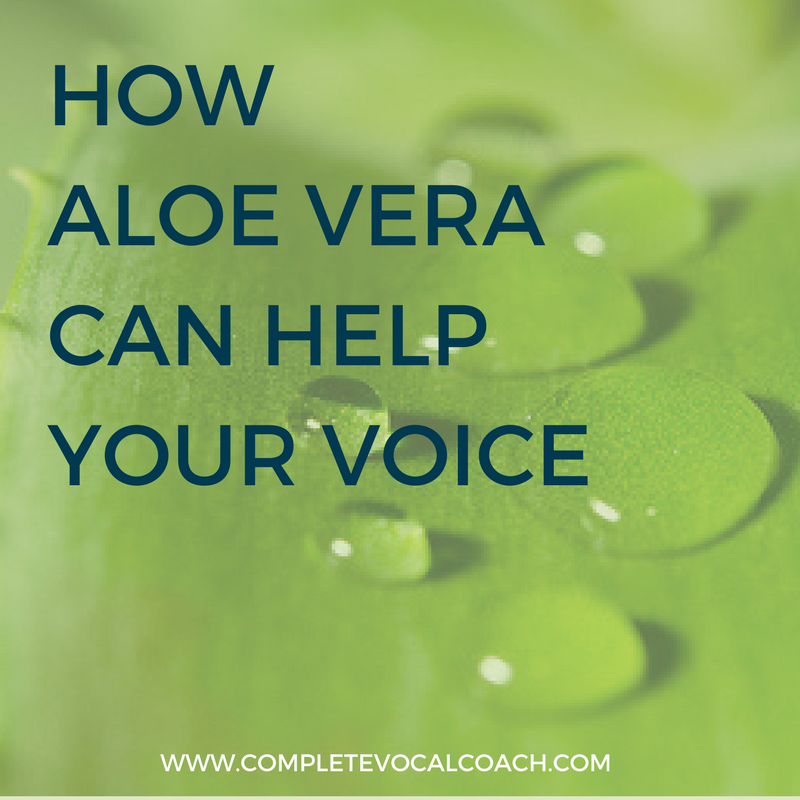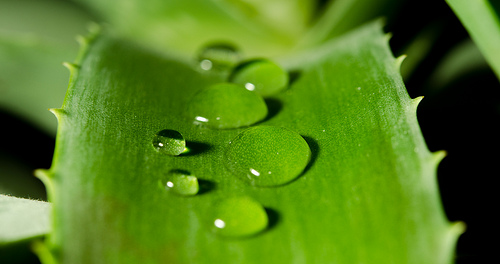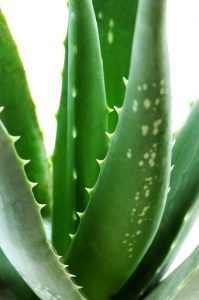When the voice doesn’t work, we singers tend to reach out to all sorts of “miracle cures” in the hopes of a speedy recovery. Call it a miracle plant or not, Aloe Vera is pretty amazing and definitely worth looking at. Dubbed the “plant of immortality” by the Egyptians, this medicinal plant contains 75 healing compounds, incuding vitamins, minerals, amino acids, enzymes, polysaccharide, and fatty acids. The inner part of the Aloe Vera leaf is filled with a clear, gel-like substance that contains 99% water. This succulent plant belongs to the lily family (Liliaceae), and has been used for milennia to help fight viruses, boost immune systems, heal wounds and more. It turns out it’s a very useful plant for the voice too.
Before you go on to read further, I want to remind you of the following:
Don’t Try To Be Your Own Doctor
In case you are experiencing vocal problems, don’t try to be your own doctor or try to diagnose and solve things by relying on information that’s available for free on the internet (including this post!). Irritation on the vocal folds and vocal problems can be caused due to incorrect technique, and various medical issues. If you are experiencing vocal problems, always consult a vocal technique specialist and an ENT (ear nose throat) doctor to make a correct medical diagnosis. Remember that this post is my personal experience, and not meant as general advise for all people in all situations.

My personal Aloe Vera story
Before I started using Aloe Vera, I would often slip into a vicious circle of reoccuring laryngitis. As soon as the viral infection that caused the original laryngitis was gone and my voice was back to normal, I’d go back to work and to using my voice. And before I knew it, my voice would get hoarse and start showing signs of laryngitis again! Now obviously, it was also necessary to adjust the balance in voice use and voice rest, something that can be quite a challenge for a singer/singing teacher who is constantly using their voice. But for whatever reason, scientific or not, adding Aloe Vera to that master plan was what helped my voice heal faster and to end those vicious circles of laryngitis. Ever since then, I’ve been using Aloe Vera whenever I am recovering from illness where my voice has been affected. I also like to add Aloe to my “hydration plan” for my voice during flu season, or periods when I know I am using my voice more than usual.
Research on Aloe Vera and the voice
When I was introduced to the benefits of Aloe Vera on the voice, I was happy to find out there’s even been some research done into this. Professor Alfonso Borragán Torre, phoniatric doctor at the Centro de Foniatría y Logopedia in Santander, Spain, has made research into what type of hydration is the best for the mucus membranes of the vocal folds. His findings show that lubricating with Aloe Vera helps in making the mucosa of the vocal folds more flexible, spongy and slippery. This helps to heal irritation or inflammation, and helps the vocal folds to function better and more efficiently. Here you can see a video of vocal fold function before and after aloe vera lubrification treatment.

How to use Aloe Vera for your voice:
Hydration / Lubrication
In dr. Borragáns gelling code, a pectin gel with 25% aloe vera is used. I’ve been using aloe vera juice (sometimes called “drinking gel”) mixed with apple juice, because this is how it was introduced to me:
Take a shot glass or small glass (about 1.5 oz / 42 ml), fill half of it with aloe vera juice, and the other half with apple juice. Keep the mixture in your mouth for a minute or two, then swallow in slow sips. You can also gargle with it. Take the mixture 2-3 times daily.
When I’m recovering from illness, like a laryngitis, I like to take this mixture daily for a period of 2 weeks. In my own experience, my voice is back on track faster when I add Aloe Vera to my recovery plan. Since Aloe Vera is an immune booster, you could also use this drink an extra supplement during flu season. Or perhaps add it as an extra to your vocal health care plan during periods when you know you’ll be using your voice more than usual, for example a tour, recording or workshop week.
Because Aloe Vera is a very potent medicinal plant, you shouldn’t be taking it internally over long periods of time. I haven’t used it daily for periods longer than 2 weeks. I’ve also understood that Aloe isn’t recommended during pregnancy and breastfeeding, menstruation, if you have hemorrhoids or problems with the liver and/or gall bladder. Aloe is not for you if you’re allergic to plants in the Liliaceae family. In any case, I’d recommend to stick to the recommendations on the Aloe juice label and to consult your doctor in case you have medical issues.
Sore throat remedy
A sore throat is an inflammation of the mucous membrane of the lower pharynx. The healing properties of Aloe Vera can help you recover faster. You can gargle with pure Aloe Vera juice, or use Aloe to “pimp up” the traditional salt water gargle mixture:
Boil some water and let it cool down until lukewarm. Then mix a teaspoon of unprocessed sea salt with 1/4 cup Aloe Vera juice and 3/4 cup of the water, and gargle with this mixture 2 times a day.
Purchasing the right type of Aloe Vera juice
 When purchasing Aloe Vera juice, check the label to make sure that it contains at least 95% pure leaf Aloe Vera. You can buy this juice in most bio stores, health food shops, or online. Also check for any added sweeteners, and know that the soda kind of Aloe Vera drinks have no healing effects whatsoever. The website aloevera.info suggests that if Aloe Vera does not constitute at least 80% of the ingredients listed, there are more additives than Aloe Vera, and it would be wiser to steer clear of that product.
When purchasing Aloe Vera juice, check the label to make sure that it contains at least 95% pure leaf Aloe Vera. You can buy this juice in most bio stores, health food shops, or online. Also check for any added sweeteners, and know that the soda kind of Aloe Vera drinks have no healing effects whatsoever. The website aloevera.info suggests that if Aloe Vera does not constitute at least 80% of the ingredients listed, there are more additives than Aloe Vera, and it would be wiser to steer clear of that product.
I use organic, unsweetened Aloe juice with 99% Aloe consistency. And as I personally try to avoid beverages sweetened with sugar, I use unsweetened, pure, organice apple juice for the aloe-apple juice mixture. I find it sweet enough!
If you’re interested in reading more about the active components in Aloe Vera, I recommend checking out this article.
Remember the big picture
If I return to my personal experience with laryngitises, aloe vera was not the only factor that helped me heal and break the vicious cycle.
So, as we already discussed earlier on in this post, do keep in mind that if you experience voice loss or hoarseness you should always see a specialist doctor who can give you a diagnosis and check the state of your vocal cords. These doctors are called Laryngologists, Ear Nose Throat Doctors (specialising in voice problems), or Phoniatricians. Also work closely together with a vocal technique specialist, SLP (speech therapist) and/or body worker to solve any underlying technical or muscle tension problems that might be related to your vocal problems, and work together with your vocal coach to check in on lifestyle and environmental factors that might need adjustments.
Do you have experiences using Aloe Vera in relationship to voice problems? I’d like to hear from you, so share your story in the comments below!
Photo credits: stravag Drops of Aloe BRFKlätterträdet Aloe plant via photopin (license)

Pingback: Optimal Hydration For A Healthy Voice
Hi, I am doing a presentation on Aloe Vera Juice for singers and I was wondering if you could tell me where you found the research that was done about aloe vera and the voice. I have been looking for any kind of credible information that I could use and I haven’t had any luck. They are mostly summaries about the end result and I would like a bit more information.
Please help 🙂
Hi Darian, I recomend you to get in touch with Alfonso Borragán Torre, at Centro de Foniatría y Logopedia in Santander, Spain. This website might also be useful for you: https://gellingeffect.com/ Hope this helps!